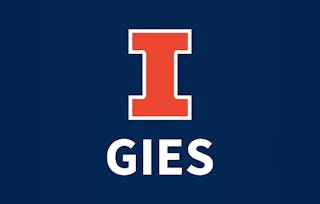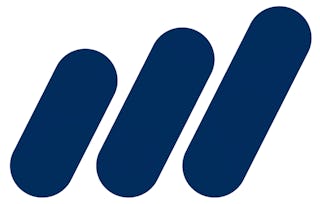In this course, you will learn the foundations of financial accounting information. You will start your journey with a general overview of what financial accounting information is and the main financial statements. You will then learn how to code financial transactions in financial accounting language. In the meantime, you will learn about the most important concept in contemporary financial accounting: accrual accounting. You will then critically analyze how firms recognize revenues. Finally, you will finish the course with an analysis of accounting for short-term assets, where you will go into detail on how firms account for accounts receivable and inventories.

Financial Accounting: Foundations

Financial Accounting: Foundations
This course is part of multiple programs.

Instructor: Oktay Urcan
174,510 already enrolled
Included with
4,620 reviews
What you'll learn
Accounting information and how it is used by different capital market participants
Record financial information and produce the main financial statements
Fundamental accounting concepts and revenue recognition criteria in preparing financial statements,
Conduct the accounting for short-term assets, with a particular focus on accounts receivables and inventories.
Skills you'll gain
Details to know

Add to your LinkedIn profile
24 assignments
See how employees at top companies are mastering in-demand skills

Build your subject-matter expertise
- Learn new concepts from industry experts
- Gain a foundational understanding of a subject or tool
- Develop job-relevant skills with hands-on projects
- Earn a shareable career certificate

There are 5 modules in this course
In this module, you will become familiar with the course, your classmates, and our learning environment. In this module, you will learn how new digital tools are enabling customers to take a more active role in developing and sharing products.
What's included
2 videos5 readings1 assignment1 discussion prompt1 plugin
Accounting is the language of business. Managers communicate the results of operations within a firm through accounting to various financial information users, including investors and creditors. In this module, you will explore various users of accounting information and the main financial statements they use to acquire accounting information. You will develop an understanding of the particular type of information provided by each financial statement and how financial statements are related to each other.
What's included
10 videos4 readings5 assignments
The starting point of financial statements is individual financial transactions. In this module, you will learn how to code financial transactions in accounting language and how to build the main financial statements from these coded financial transactions. This bottom-up approach will help you appreciate the impact of various financial transactions on the main financial statements.
What's included
5 videos5 readings5 assignments
Fundamental accounting concepts and revenue recognition principles are at the heart of coding financial transactions in accounting language as well as the preparation of financial statements from these coded financial transactions. Real-life transactions are reflected in financial statements through the lens of these concepts and principles. A good understanding of these concepts and principles will help you understand the type and nature of information you can learn from financial statements.
What's included
6 videos4 readings5 assignments1 peer review
One of the major components of a balance sheet is short-term assets, which are assets that can be converted into cash within a year. Accounts receivables and inventories constitute a major part of short-term assets. Understanding accounting for these accounts will help you uncover how these accounts change over time, their valuation, and their usefulness in managerial decision-making.
What's included
11 videos6 readings8 assignments1 plugin
Earn a career certificate
Add this credential to your LinkedIn profile, resume, or CV. Share it on social media and in your performance review.
Build toward a degree
This course is part of the following degree program(s) offered by University of Illinois Urbana-Champaign. If you are admitted and enroll, your completed coursework may count toward your degree learning and your progress can transfer with you.¹
Instructor

Offered by
Explore more from Finance
 Status: Free Trial
Status: Free TrialIESE Business School
 Status: Free Trial
Status: Free TrialUniversity of Illinois Urbana-Champaign
 Status: Free Trial
Status: Free TrialUniversity of Virginia
 Status: Free Trial
Status: Free TrialCorporate Finance Institute
Why people choose Coursera for their career

Felipe M.

Jennifer J.

Larry W.

Chaitanya A.
Learner reviews
- 5 stars
78.87%
- 4 stars
17.13%
- 3 stars
2.42%
- 2 stars
0.75%
- 1 star
0.80%
Showing 3 of 4620
Reviewed on Aug 4, 2020
Thank you very much for the University of Illinois and Prof. Oktay. The best explanation ever! Interesting cases and problems! This course helped me to create a strong foundation in accounting.
Reviewed on Jun 6, 2020
The modules were extremely informative and nothing less to say, Oktay sir's presentations were very easy to understand even for a person like me who has no prior knowledge about Financial Accounting.
Reviewed on Apr 19, 2021
This course was really helpful for me to receive the necessary information n about basic accounting principles. I would say thanks a lot to the professor and good luck to everyone!!!

Open new doors with Coursera Plus
Unlimited access to 10,000+ world-class courses, hands-on projects, and job-ready certificate programs - all included in your subscription
Advance your career with an online degree
Earn a degree from world-class universities - 100% online
Join over 3,400 global companies that choose Coursera for Business
Upskill your employees to excel in the digital economy
Frequently asked questions
Once you enroll for a Certificate, you’ll have access to all videos, quizzes, and programming assignments (if applicable). If you choose to explore the course without purchasing, you may not be able to access certain assignments.
You will be eligible for a full refund until 2 weeks after your payment date. You cannot receive a refund once you’ve earned a Course Certificate, even if you complete the course within the 2-week refund period. View our full refund policy.
Yes! Coursera provides financial aid to learners who would like to complete a course but cannot afford the course fee. To apply for aid, select "Learn more and apply" in the Financial Aid section below the "Enroll" button. You'll be prompted to complete a simple application; no other paperwork is required.
More questions
Financial aid available,

